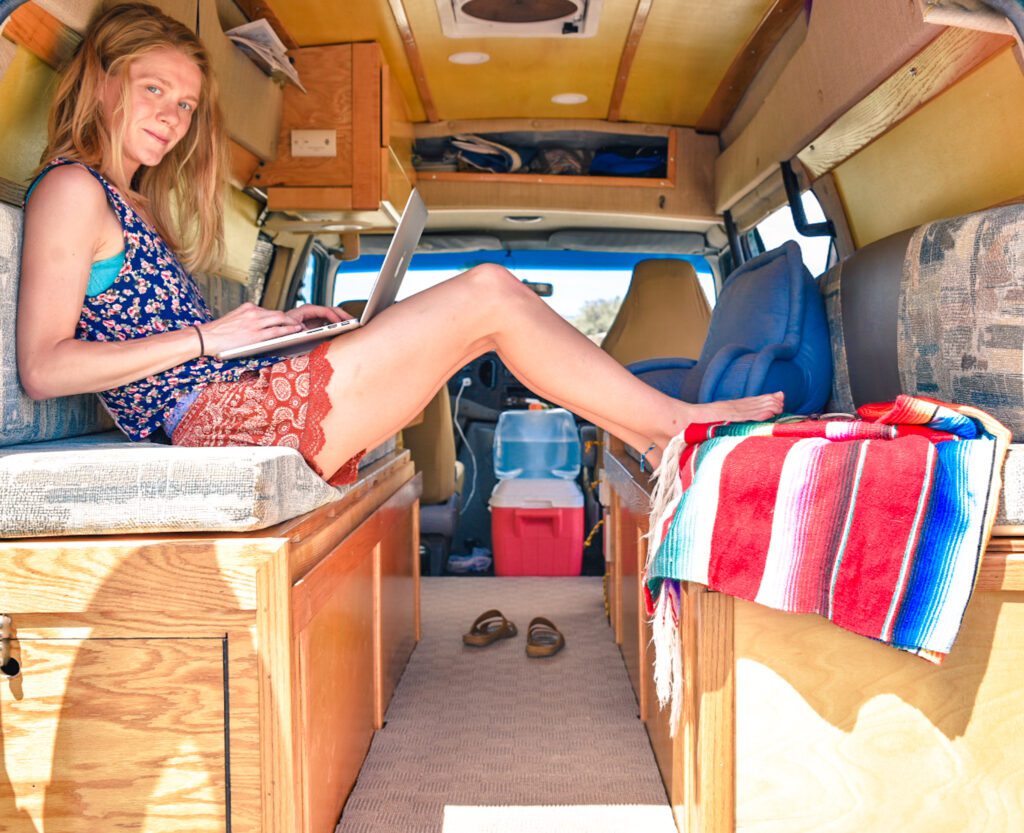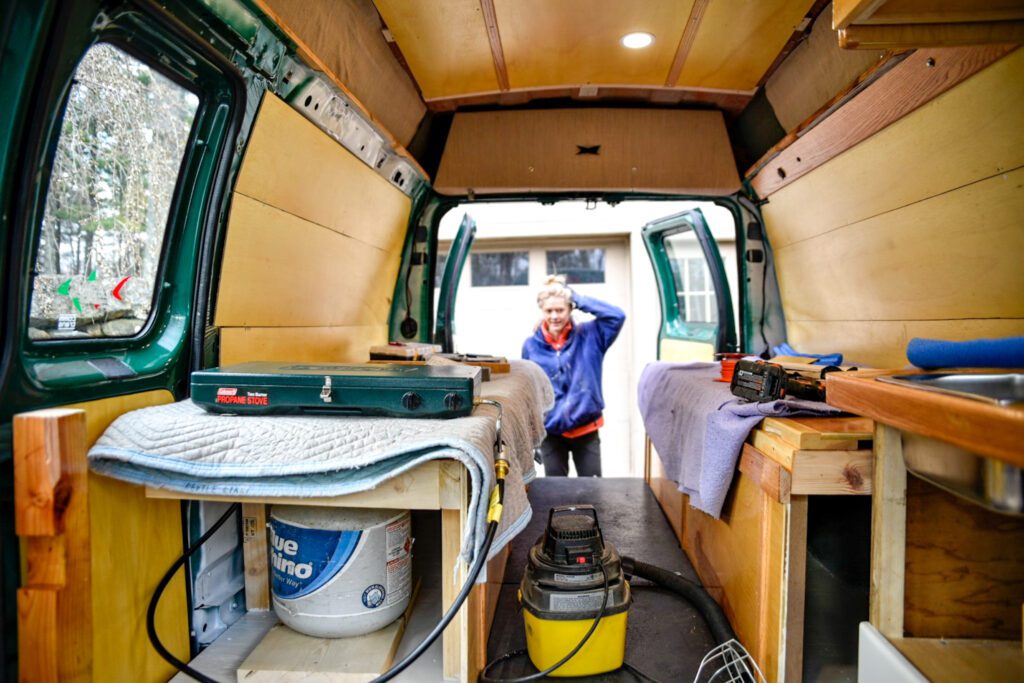Maybe you’re burned out from the 9-5 corporate grind. You know there’s more to life than sitting behind a desk for eight hours a day, but you don’t know what to do about it.
You’ve seen the glamorized version of #vanlife on Instagram, and while it looks too good to be true, you’re afraid it’s exactly that…but it’s still drawing you in.
As a woman who recently left the corporate world to pursue solo female van life, I’m here to shed some light on the topic. I spent five months building out my van and have now been on the road full-time for three months.
While I can confirm that #vanlife is not nearly as glamorous as it’s a portrayal on Instagram, it is all it’s cracked up to be. Yes, part of it is the beautiful sights you get to see, but another part is the insight you gain on yourself.
If you’re interested in this lifestyle, here are some questions to first ask yourself.
1. Can I Handle That Much Time Alone?
As a solo traveler, you spend a lot of time alone. There’s no one to bounce ideas off of or to help choose a restaurant or sight to visit. You’re fully reliant on yourself, and sometimes this can get lonely. But it’s about understanding how to manage those lonely feelings when they pop up–and if anything, they can be great practice for learning how to be content with yourself.
But look at your lifestyle now to understand how much time you spend with friends versus by yourself. Do you feel recharged or drained after being social? Do you crave alone time after seeing friends? If you’re more of a socially-oriented person, solo van life could be a tough transition. This doesn’t mean it’s not possible; it just means you should be deliberate about setting up a digital communication routine with friends and family before hitting the road.
But if you recharge from alone time, then van life could be a fit for you. One of the biggest reasons I wanted to try this lifestyle was to remove outside distractions that were influencing my day-to-day life. I wanted to answer the question: if all outside influencers are removed from my life, what am I capable of achieving? What level of inner peace can I reach? How far can I get in finally building out my own small business?
Having this much alone time has allowed me to hold myself accountable for reaching my goals every day, and I’ve learned I thrive when being alone.
2. Can I Adjust to fewer Amenities and Conveniences?
Once you’re on the road, everything you’d take for granted in a house becomes a micro-decision you have to make on a daily basis. For example, where will you go to the bathroom? Where can you shower? How will you get WiFi? Where can you spend the night? All of these questions can become exhausting to answer–because again, there’s no one around to bounce ideas off of!
I have made lots of adjustments to my daily hygiene routine and lowered my need for amenities significantly. It feels good to use less water every day and now I don’t even wear makeup, which has helped clear up my skin. But I will admit, there are days when all I want is a clean bathroom and hot shower. I’ve bathed in cold rivers, lakes, and have used portable shower bags to rinse off, which somehow don’t match the relaxation of a real shower!
If you’re someone who has to have their morning shower every day or is very meticulous about their hygiene, van life may not be for you. Or, you’ll just have to prepare yourself for reaching some new low levels of hygiene!
Realistically, our society is extremely preoccupied with being overly-clean, and not only is this wasteful, but it can be more harmful than good for our bodies.
For example, letting natural oils build up in your hair keeps it healthy and not dried out. So consider if these are adjustments you’d be willing to make.
3. How Will I Stay Financially, Afloat?
Of course, this is a huge concern for anyone on the road. If you’re seriously considering this lifestyle, the best piece of advice I can give you is to start saving as much money as possible right now. While van life can save you lots of money in the long-run thanks to no rent, utility bills, or hidden fees, the up-front costs can be a lot. What’s more, you need to budget for monthly expenses and emergencies.
Since my career was in digital marketing, I feel fortunate that it was an easy career to transition into remote work. I currently do part-time, remote marketing, and it allows me to cover monthly costs and save a little bit. But regardless of your work history, there are lots of options to find work on the road. And assuming you don’t get into an accident or have a big van breakdown, your cost of living does become very cheap. The biggest van life cost is buying and converting your van! If you don’t feel equipped to build out the van yourself, there are lots of van conversion companies that can help–but will come with a pretty hefty price tag.
I chose an old van (a 1999 Ford E250) because it was inexpensive, and I had enough budget to put towards some mechanical fixes. Most of the supplies and resources for my build came from my parents’ basement; so many old random things around the house that I never would’ve guessed would go to use in my new home on wheels!
The van buildout can be the chance to get really creative and resourceful with how you find build help and supplies. Before I ever purchased something new on Amazon or in a store, I’d first scan through Craigslist, Facebook Marketplace, and eBay to make sure I couldn’t get a cheaper version of whatever I was looking for first.
If you still think solo female van life could be the life change you’re looking for, continue to save money and research the type of van that would fit your desired road travel.
Life’s too short to not live it to the fullest, and don’t let the fear of the unknown hold you back!




